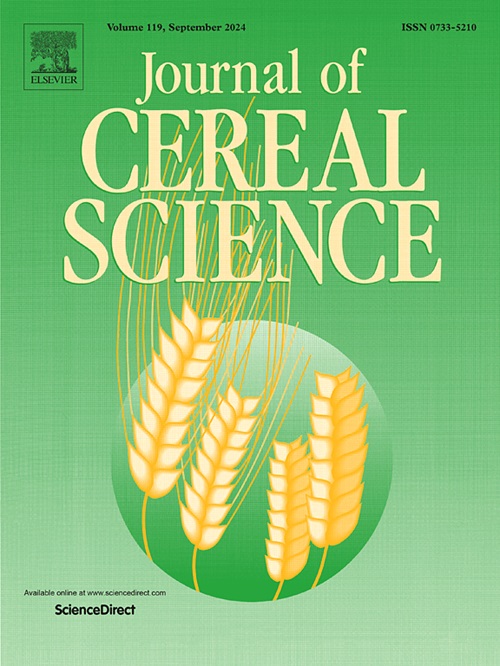Upcycling of minimally processed oat okara: Dietary fibre enrichment of wheat bread
IF 3.9
2区 农林科学
Q2 FOOD SCIENCE & TECHNOLOGY
引用次数: 0
Abstract
With the increasing production of oat-based milk alternatives, a by-product with high nutritional value is generated in considerable amount. Due to its high moisture content, this so-called oat okara demands for subsequent processing strategies to ensure safe storage and further utilisation in food production. In this study, three okara from two manufacturers were dried and milled in lab-scale. The okara powders were then used as wheat flour substituents (5 and 10 g/100 g) in bread making. Despite differences in nutritional composition because of variations in the raw material or processing parameters during beverage production, protein (27–50 g/100 g) and insoluble dietary fibre (27–38 g/100 g) represented the main fractions in crude okara. When freeze drying was applied instead of convective drying, thermally induced changes (e.g. discolouration) were avoided. Solubility and moisture sorption increased for okara with higher contents of soluble dietary fibre and non-dietary fibre carbohydrates. With increasing okara substitution, breads showed reduced baking loss, a more compact structure and higher crumb firmness. Significant differences in taste (nutty, salty, grainy), odour (nutty, yeasty) and consistency (fibrousness) were observed in sensory assessments. The findings highlight the potential of dried okara as a valuable food ingredient for protein and fibre enrichment.

求助全文
约1分钟内获得全文
求助全文
来源期刊

Journal of Cereal Science
工程技术-食品科技
CiteScore
7.80
自引率
2.60%
发文量
163
审稿时长
38 days
期刊介绍:
The Journal of Cereal Science was established in 1983 to provide an International forum for the publication of original research papers of high standing covering all aspects of cereal science related to the functional and nutritional quality of cereal grains (true cereals - members of the Poaceae family and starchy pseudocereals - members of the Amaranthaceae, Chenopodiaceae and Polygonaceae families) and their products, in relation to the cereals used. The journal also publishes concise and critical review articles appraising the status and future directions of specific areas of cereal science and short communications that present news of important advances in research. The journal aims at topicality and at providing comprehensive coverage of progress in the field.
 求助内容:
求助内容: 应助结果提醒方式:
应助结果提醒方式:


